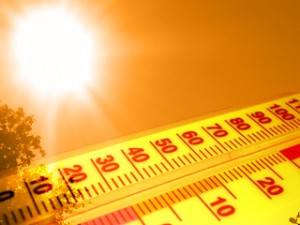
The bulk of summer is still yet to come, and with it will come the intense heat.
Guthrie County Health Services Director Jotham Arber says that there are quite a few ways that the heat can get to people, including sunburn, and heat induced illnesses. He says thermal shock is one that people may not think of, but after several trips in and out of the heat into an air conditioned vehicle or building, the symptoms will make themselves known. Arber tells Raccoon Valley Radio a few helpful things to help with thermal shock and the other heat illnesses.
“A couple of really important tips. One, we want to make sure that we’re staying cool when it’s hot. We understand that going outside, we’re going to put that sunscreen on, but that sunscreen doesn’t prevent our bodies from becoming dehydrated or overheated. So we need to make sure that we’re staying cool and we’re listening to our bodies. When we’re out there, we want to make sure that we’re staying hydrated. So drinking lots of water, drinking water is the number one thing besides wearing sunscreen that we would recommend to anybody who’s going to be outside for long periods of time.”
Arber adds that heat exhaustion and heat stroke are the other most common heat induced illnesses. He explains that heat exhaustion happens when your body gets too hot, and you feel nausea, dizziness and headaches, along with having excessive sweating. Once you stop sweating, and become confused or lose consciousness, that’s when you’re suffering from heat stroke.

